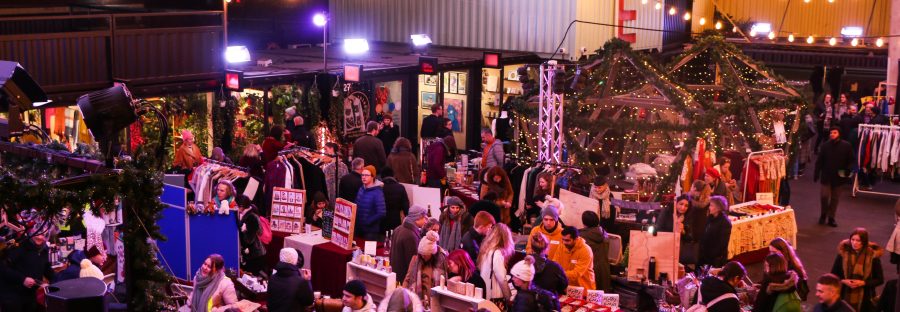Huge popularity for Manchester’s first sustainable Christmas Market
- – First market of its kind in the North took part at Hatch
- More than 25 independent and zero waste brands sold their products
- Vsitors could attend free talks and variety of workshops that sold out weeks before the event
More than 2,000 people signed up for the first sustainable Christmas Market in the north that was held at Hatch with workshops selling out weeks prior the event.
More than 25 independent and zero waste brands were part of the market and offered eco-friendly christmas gifts ranging from fashion items, jewellery, home decorations, tea to reusables and seasonal items – all with zero plastic packaging.
In the popular workshops that sold out weeks before, adults and children could learn how to make DIY beeswax food wraps, festive wreaths and how to ferment food like sauerkraut and vegan cashew cheese.
“The workshop was great and I am actually really excited that so many people already know about the beeswax wraps and they now switch to them from cling film and aluminium foil”, said wrapit founder Vladislav Mukhachev who arranged the beeswax wraps workshop.

Alongside the Christmas stalls there were talks on stage on how to live sustainably at Christmas and inspiring stories from local eco heroes.
“The event has been absolutely amazing, I’ve been completely blown away by the number of people here and by the atmosphere. All the trades had a good day and all of the existing Hatch traders have said that they had a lot more foot traffic and it is just something different for the area. So if they invite me back, I certainly do another market”, said Melanie Fisher founder of Zero Waste Goods and organiser of the event.
For her Hatch seemed like a great place to host the zero waste Christmas market.
“All of the traders already have signed up to a minimum standard for being environmentally aware which is partly one of the reasons we decided to host this market at Hatch,” she said.
Being sustainable means for Zero Waste Goods not only producing zero waste products but also that their brands supply chain, transportation, packaging and even business operations are all of a high environmental standard.
For Lydia McEvoy, one of the traders that sold her musamundi jewellery at the sustainable Christmas Markets, being sustainable means not having a negative impact on the environment, and as a result, that the process in question can be repeated over a period of time.

Asked how sellers can achieve being more sustainable, she answered: “By first acknowledging the ugly truths hidden behind materials. It is of course down to our suppliers to make responsible decisions, but it’s down to us sellers to enquire about their sustainability practices and demand transparency and positive change.
“We need to ask ourselves what impact does our material have on the environment? Can we minimise our packaging? Can we replace any chemicals with natural substances? Can we offset our hipping? Sustainable practices are never complete, but rather a constant opportunity to improve.”
Melanie Fisher hopes that these processes are a step for the word to really move forward.
She said: “I think just seeing the quality and number of people who are interested in this is starting to sparkle a wider awareness from all of the traders around what more they can do, how they can reduce plastic further, how they can access suppliers better and I think that is a really great thing.”


